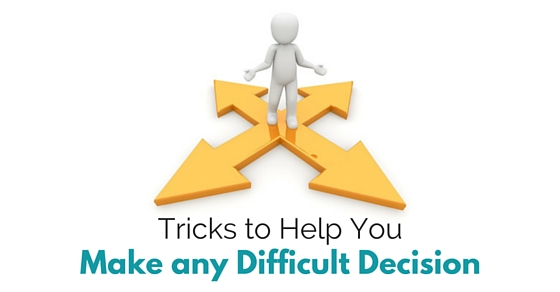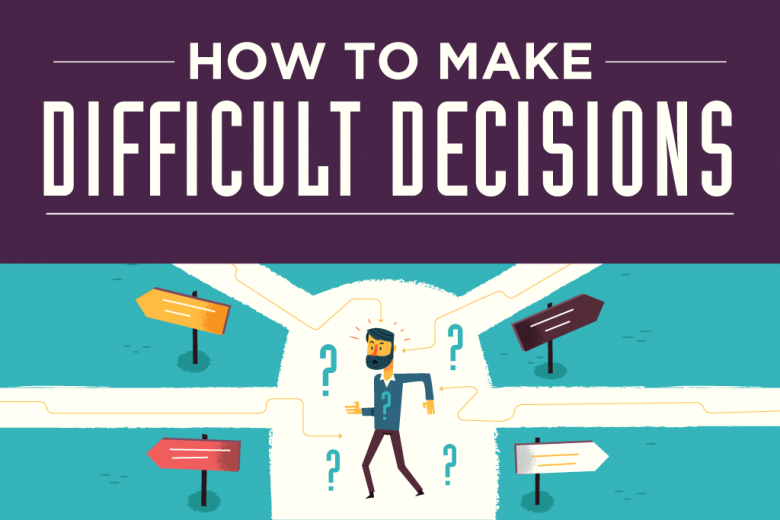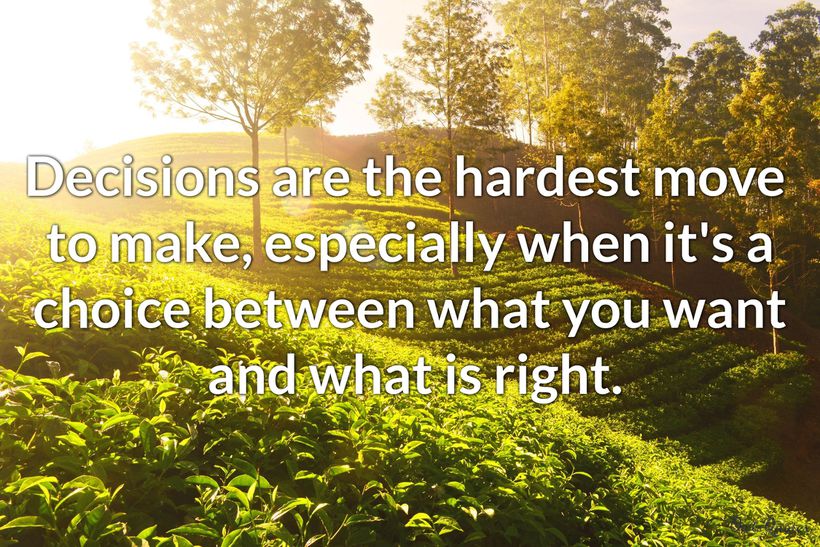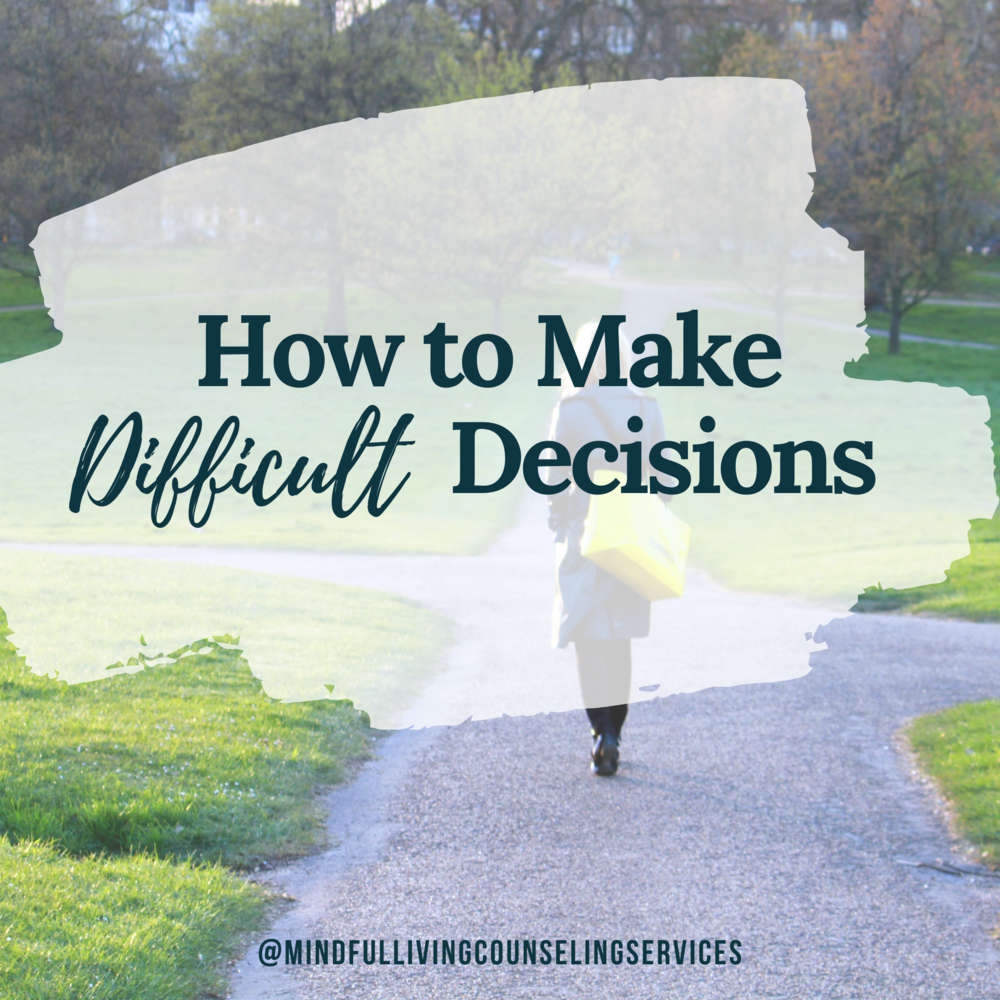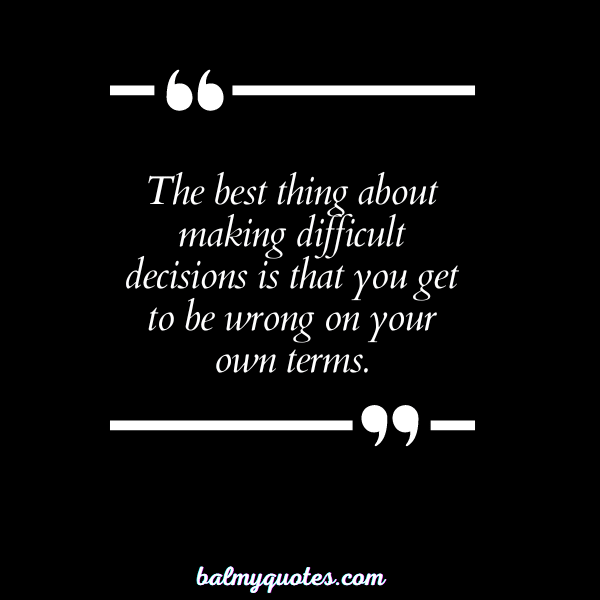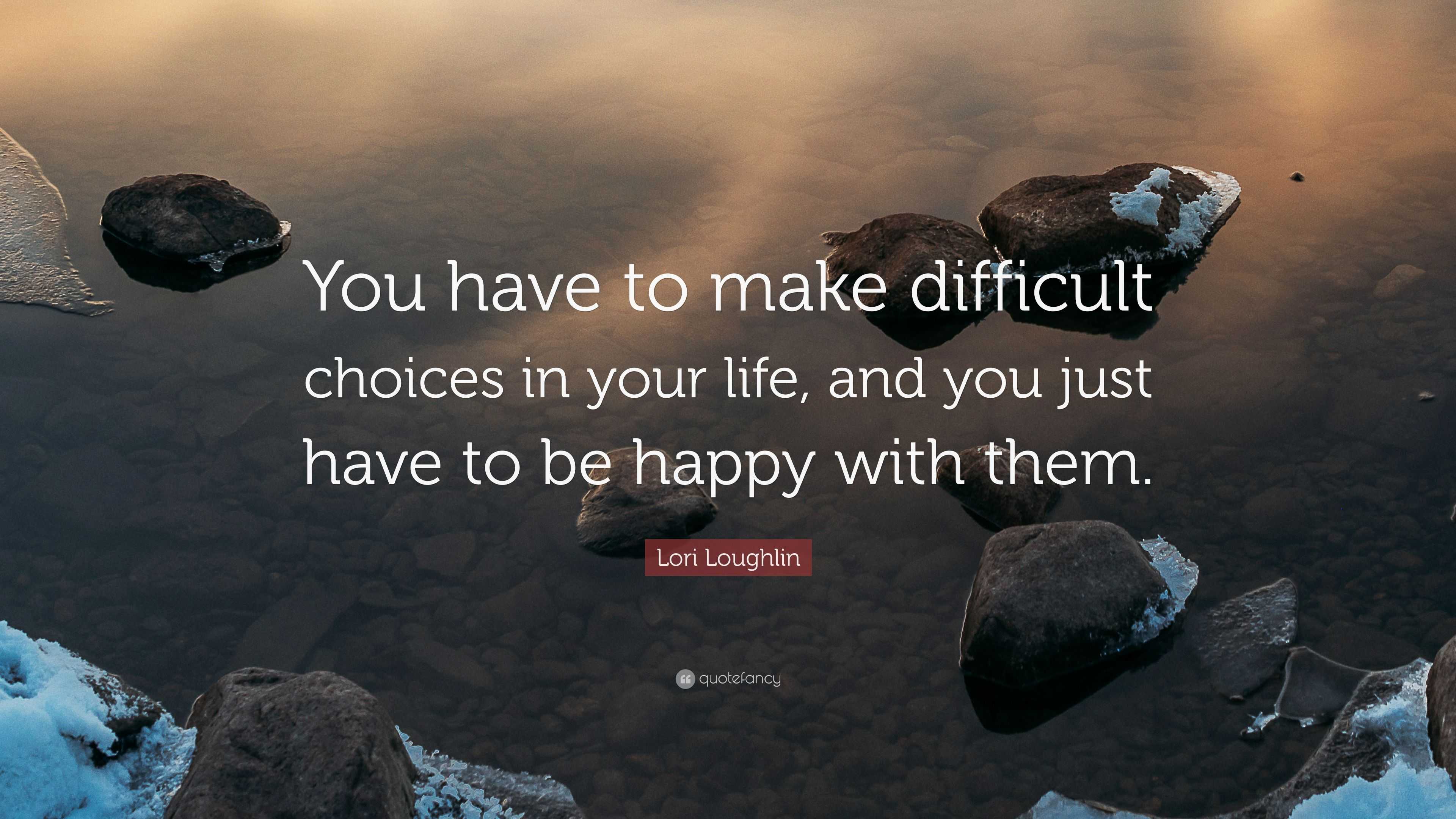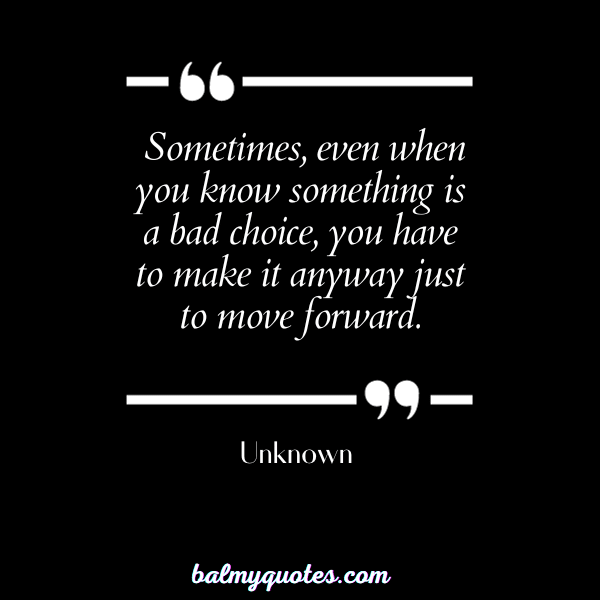When You Have To Make A Difficult Decision

The weight of a difficult decision can feel crushing, a vise gripping the mind and heart. Whether it's a career pivot, a family matter, or a choice impacting an entire community, these moments demand careful consideration and often involve navigating complex ethical and practical considerations.
At the heart of any difficult decision lies the need to balance competing values, weigh potential consequences, and ultimately choose a path forward despite uncertainty. This article explores the multifaceted nature of these decisions, examining the psychological processes involved, strategies for effective decision-making, and the potential long-term impact on individuals and society.
Understanding the Psychology of Difficult Decisions
Our brains are wired to seek pleasure and avoid pain, a fundamental principle that can significantly complicate difficult decisions. Cognitive biases, such as loss aversion – the tendency to feel the pain of a loss more strongly than the pleasure of an equivalent gain – can skew our perception of risk and reward.
According to research published in the Journal of Behavioral Decision Making, emotional factors often outweigh rational analysis, leading to impulsive or suboptimal choices. This is especially true when under stress or time constraints.
Furthermore, the phenomenon of cognitive dissonance can create internal conflict. This occurs when a decision contradicts existing beliefs or values, leading to feelings of discomfort and a tendency to rationalize the choice, even if it's not the best one.
Strategies for Navigating Complex Choices
While emotional responses are unavoidable, there are strategies to mitigate their impact and promote more reasoned decision-making. One crucial step is gathering comprehensive information from credible sources. This might involve consulting with experts, analyzing data, and considering diverse perspectives.
Another effective technique is creating a decision matrix, a tool that allows you to systematically weigh the pros and cons of each option based on predefined criteria. This approach helps to quantify potential benefits and risks, providing a clearer picture of the overall landscape.
The use of ethical frameworks can also provide valuable guidance. For instance, the utilitarian principle focuses on maximizing overall happiness, while deontological ethics emphasize adherence to moral duties and principles, regardless of the consequences. The Stanford Encyclopedia of Philosophy provides comprehensive information on ethical theories.
Case Studies: Difficult Decisions in Action
Consider the dilemma faced by a CEO deciding whether to implement automation technology that could significantly improve efficiency but also lead to job losses. This decision involves weighing the interests of shareholders, employees, and the broader community.
Or think about a physician tasked with allocating scarce medical resources during a pandemic. In these situations, ethical considerations are paramount, and decisions must be made in a transparent and equitable manner.
The COVID-19 pandemic presented numerous examples of these agonizing choices. Public health officials had to balance the need to protect public health with the potential economic and social consequences of lockdowns and other restrictions. These decisions continue to be debated and analyzed, highlighting the lasting impact of difficult choices.
The Long-Term Impact and Moving Forward
The consequences of difficult decisions can extend far beyond the immediate situation. They can shape our personal and professional trajectories, impact relationships, and influence the well-being of entire communities.
Developing resilience and the ability to learn from mistakes are crucial skills for navigating the aftermath of challenging choices. It's important to acknowledge that even the most well-reasoned decisions can have unintended consequences, and that adaptability is key to overcoming adversity.
Ultimately, facing difficult decisions is an unavoidable part of life. By understanding the psychological processes involved, employing effective decision-making strategies, and learning from our experiences, we can navigate these challenges with greater confidence and resilience.
"The ultimate measure of a man is not where he stands in moments of comfort and convenience, but where he stands at times of challenge and controversy." - Martin Luther King Jr.
